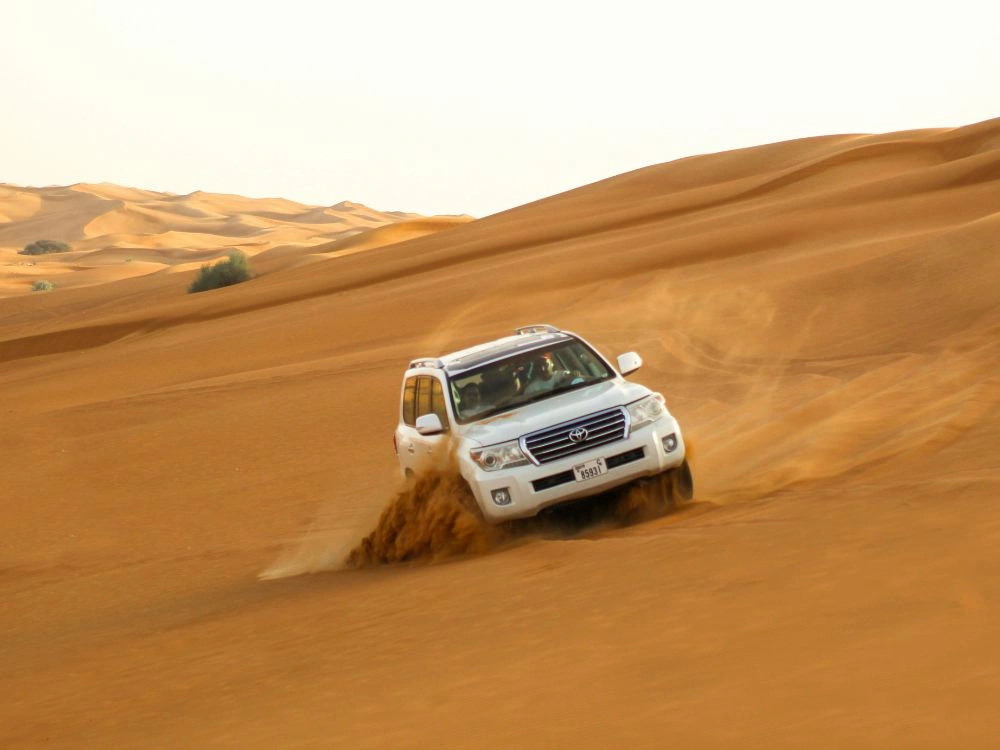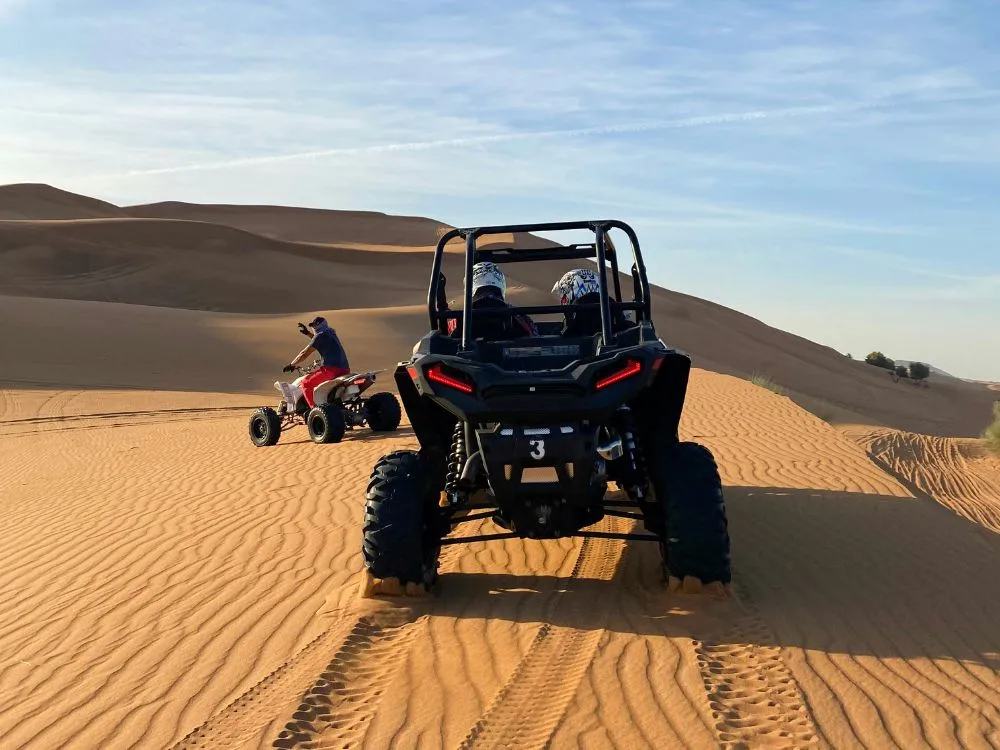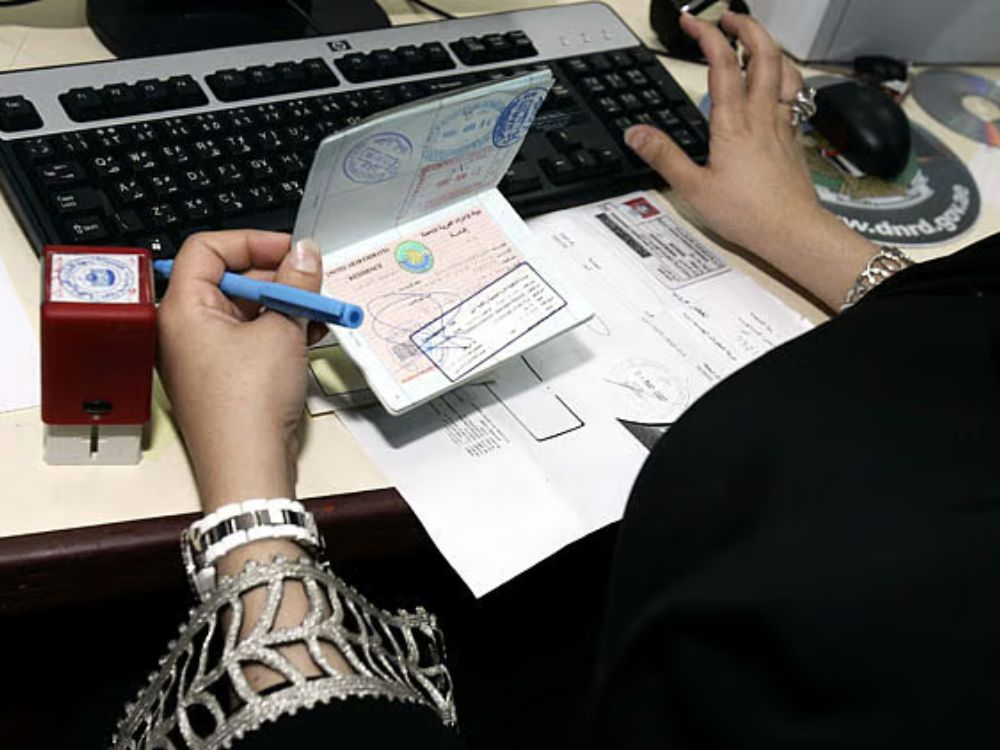Desert Safety Tips in the UAE: Stay Safe on Your Desert Safari

Desert Safety Tips in the UAE: Stay Safe on Your Desert Safari
Exploring the vast, golden deserts of the UAE is an unforgettable experience. Whether you’re heading out for a desert safari or a solo dune drive, understanding the desert safety tips in the UAE is essential for a safe and enjoyable journey. Here’s a comprehensive guide to help you prepare and protect yourself during your desert adventures.
1. Check Weather Conditions
Before you head out, always check the weather forecast. High winds can create sandstorms, and extreme heat can make the experience dangerous. Avoid going out in peak afternoon temperatures, especially during the summer months.
2. Dress Appropriately
Wear lightweight, breathable clothing that covers your skin to protect against the sun and sand. A wide-brimmed hat, sunglasses, and sunscreen with high SPF are also vital desert safari essentials.
3. Stay Hydrated
The dry desert air can lead to dehydration very quickly. Carry plenty of water—at least 3 to 4 liters per person. Avoid alcohol or caffeine before and during your safari, as they contribute to dehydration.
4. Use the Right Vehicle
If you’re not with a tour group, ensure your vehicle is equipped for off-roading. Four-wheel drives with proper suspension are a must. Lower the tire pressure slightly for better traction on sand, and carry a tire inflator and recovery gear.

5. Tell Someone Your Plans
Always inform someone of your travel route and expected return time. Cell phone coverage can be limited in remote areas, so consider taking a satellite phone or GPS device for emergencies.
6. Learn Basic Navigation
While many desert safari tours provide guides, those venturing alone should understand how to navigate using a compass or GPS. Getting lost in the desert without these skills can be life-threatening.
7. Watch for Wildlife and Insects
Deserts are home to snakes, scorpions, and other creatures. Wear closed shoes and be cautious when sitting or reaching into shaded areas or rocks.
8. Emergency Contacts and Kits
Always carry a basic first-aid kit, flashlight, spare batteries, and emergency contact numbers. For safety, keep the UAE’s emergency number handy: 999 for police or medical services.
9. Respect the Environment
Follow the “leave no trace” principle. Do not litter and avoid damaging plants or disturbing wildlife. Stay on established paths where possible.
10. Go with Licensed Safari Providers
If you’re booking a desert safari, choose licensed and experienced operators. They follow important safety protocols—such as professional driver training, mandatory vehicle maintenance, and speed-control limits—designed to protect you during dune driving dubaidesertsafari.com. Including this link not only validates your content but also guides readers to trustworthy information.
Desert Safety Comparison at a Glance
| Aspect | DIY Safari | Guided/Operator Safari |
|---|---|---|
| Navigation | You’re in charge—must bring GPS/compass | Guide is responsible; less stress |
| Vehicle Safety | You handle tire pressure and recovery gear | Included in tour; trained drivers and gear |
| Preparation Required | You must pack water, kit, and emergency tools | Often provided—verify before booking |
| Risk of Getting Lost | Higher—remote areas lack landmarks or signal | Very low with experienced guides |
| Legal Compliance | Must ensure permits/licenses yourself | Operator usually holds all necessary permits |
| Cost | Can be cheaper if vehicle available | Costlier—but safer and more convenient |
Conclusion: Embrace Dubai’s Diverse Attractions Safely
While desert safaris offer an exhilarating experience, Dubai’s diverse attractions provide a wealth of activities suitable for all interests and seasons. From thrilling indoor adventures to cultural explorations, the city caters to every traveler. For a comprehensive guide on the top attractions to visit in Dubai after summer, explore our detailed article on Best Dubai Attractions After Summer.



